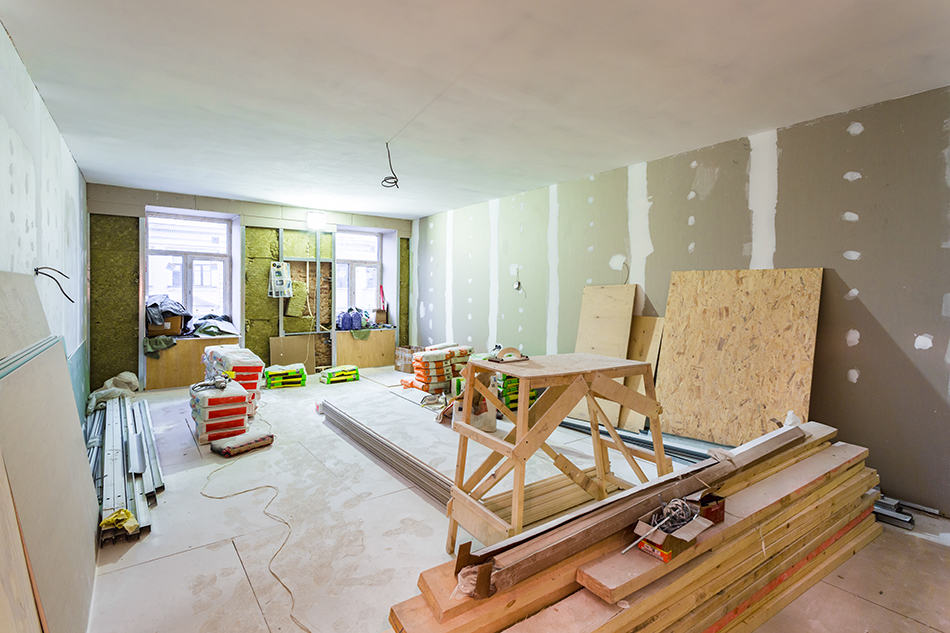These days, time is money. Dealing with government bureaucracy and red tape tends to instantly trigger a red light that says “time sink!” in our heads. Most government transactions indeed tend to have complex procedures and an unpleasant air around them.
If you have ever looked at the list of requirements for a building permit and thought that you would rather not deal with it – you are probably not alone. However, this is no excuse to skip this necessary process!
It’s time to review why permits are important when you should get them, and, most importantly, what happens if you do not get one.
Why are Permits Important?
The reasons that make permits important can be all summed up in one word: safety. This translates into a safe building for its users, plus a safe workspace for those who will be building it, and even a safer building to own.
The process to acquire a permit may seem esoteric at times, but it was created to include all the safeguards necessary for the community. When you file the documents for a permit, the city or local council will get an opportunity to look at:
- The construction methods
- The structural integrity of the drafter building
- Its ability to resist floods, earthquakes, or other environmental hazards in the area
Here, the idea is to ensure that the building, addition, or shed that you are building won’t cause any reckless damage to the community.
In addition, building permits also serve to record and document changes to a property. In this sense, they are a way in which you can protect your investment. Without a building permit, any addition that you make to your property will be nonexistent in the eyes of the law. And as we will see later on, this could spell problems!
When do You Need a Permit
So do you need to go through this process whenever you want to nail something in your home? Fortunately, the answer is no.
The exact list of circumstances in that you will need to obtain a permit will vary, depending on your City code or jurisdiction. Besides, many local HOAs may have additional rules to enforce. However, most local authorities follow similar guidelines.
Usually, small cosmetic repairs do not need a permit. This includes a layer of paint, tiling, changing the floor, or anything that falls under “finishes.”
Likewise, adding temporary structures, such as a drywall partition or fences under six feet, will not require a permit either.
On the other hand, anything that changes the layout of the house, the roofed area, or the load-bearing walls will require a permit. Standalone additions, such as pool houses or sheds, will also require a permit. For the most part, most established licensed contractors can tell you what types of work require a permit in your area.
5 Risks You Take if You Remodel without a Permit
Here are 6 reasons why the paperwork is 100% worth it:
The work may not be done correctly
The building permit application process provides a good opportunity to get a fresh pair of eyes on any set of blueprints. If you are not well-versed in construction and bought a design or plan from someone else, take the opportunity to check their work.
If you do not file for a permit, you may not be able to notice whether there is something iffy about your new shed or if that new roof will truly withstand the local winds.
Plus, in most areas, the permit process includes either a worksite inspection or a building inspection after the works are completed. If your contractors did a shoddy job, this final inspection would give you good grounds to address it or to compensate you.
Your property may lose value
If you add a shed or side structure to your home without a permit and then decide to sell it, you will have to lower your asking price.
This may become evident from the very beginning: the minute you call an appraiser, you will begin to see the dollars you are losing. This is because any extra structures that were built without a permit cannot be included as part of your home’s value – so that beautiful “man cave” with very expensive soundproofing will not count for anything.
When it’s time to close the sale, you may have to lower your price further: the new owners will have to either get a post-construction permit or tear down the structure. This will cost them money – and if they know what they are doing, this will come up at the negotiation table.
You won’t be covered if something happens
Building permits help support the existence of an additional structure. If you build a shed without a permit, and a few years later, a hurricane hits your area, this new shed won’t legally exist.
As a result, any damages to the shed won’t be covered by your homeowner’s insurance. If you live in a flood-prone area, you could also be cut from FEMA benefits.
In addition to natural disasters, you will also be left unprotected in the event of an accident while building or using the structure. Any remodels that were done incorrectly could impact your home’s entire integrity – and damage even the original parts. Finally, because the remodels cannot be included in the appraisal, if you ever hit dire straits and need to take out a mortgage, you won’t be able to use that value as part of your collateral.
You may be fined
As a general rule, most city halls don’t randomly knock on people’s doors to check for unregistered remodels. Because of this, many homeowners decide that they would rather risk it, confident that nobody would notice. If a disgruntled neighbor decided to point the finger, you might be subject to fines and penalties.
Most local authorities set penalties for illicit buildings. The exact amount will vary according to the jurisdiction. However, they are rarely less than three times the cost of a permit’s fees or stamp duty.
What’s more – a fine is akin to walking off lightly! Depending on where you leave, legal consequences could be much higher.
You may be asked to destroy your work
Another common measure taken to discourage unlicensed construction or additions is asking the owner to tear down the addition. This can be as simple as removing the drywall from a frame if an inspector realizes that it was not properly authorized.
If your remodels include a large structure that is visible from the outside, the city can get a court order and have their squad of workers take care of the “demolition.” In such cases, you will get no guarantees that the workers will be careful about the objects attached or close to your remodeled structure. In some cases, they may even then ask you to pay the City or Council back for the cost of said demolition.
This is not true for all areas, and many towns don’t take such a heavy-handed approach to unlicensed remodels. However, it is clear that most jurisdictions intend to discourage other residents from doing the same – and in the process, this may cost you several times the cost of the original remodel.
You may be liable if something happens to the workers
Nowadays, most licensed contractors take building permits seriously. Because of this, they will commonly refuse to take on any remodels where the homeowner is not respecting the law.
That being said, there is plenty of fish in the sea, and so there are many other contractors who will be willing to take a blind eye to an unlicensed remodel. But, then, how many regulations are they breaking themselves? This should immediately raise a few red flags about their safety policies.
If the job at hand feels simple, this may feel like a relatively safe bet. But if this unscrupulous contractor has taken the same attitude to workman’s compensation or construction insurance, the potential costs can skyrocket. If his or her squad is not covered under any policy, and something happens while they are at your property, you will be responsible for the workers’ medical bills. In addition, the worker may choose to sue you as well!
Final Thoughts
Building permits help keep a community safer. This includes those who may be using a home or building, the workers who build it, innocent passers-by, and even you – as the owner of said property.
Red tape is hardly anybody’s idea of fun. However, the consequences of remodeling your home without going through the appropriate channels could be far more unpleasant. It’s better to cross your Ts properly from the start!







